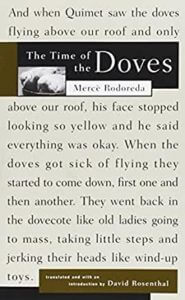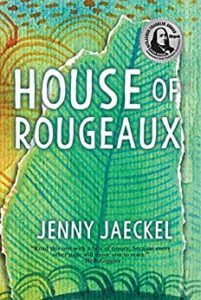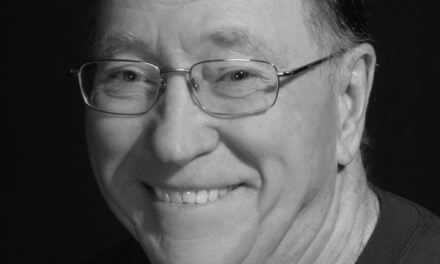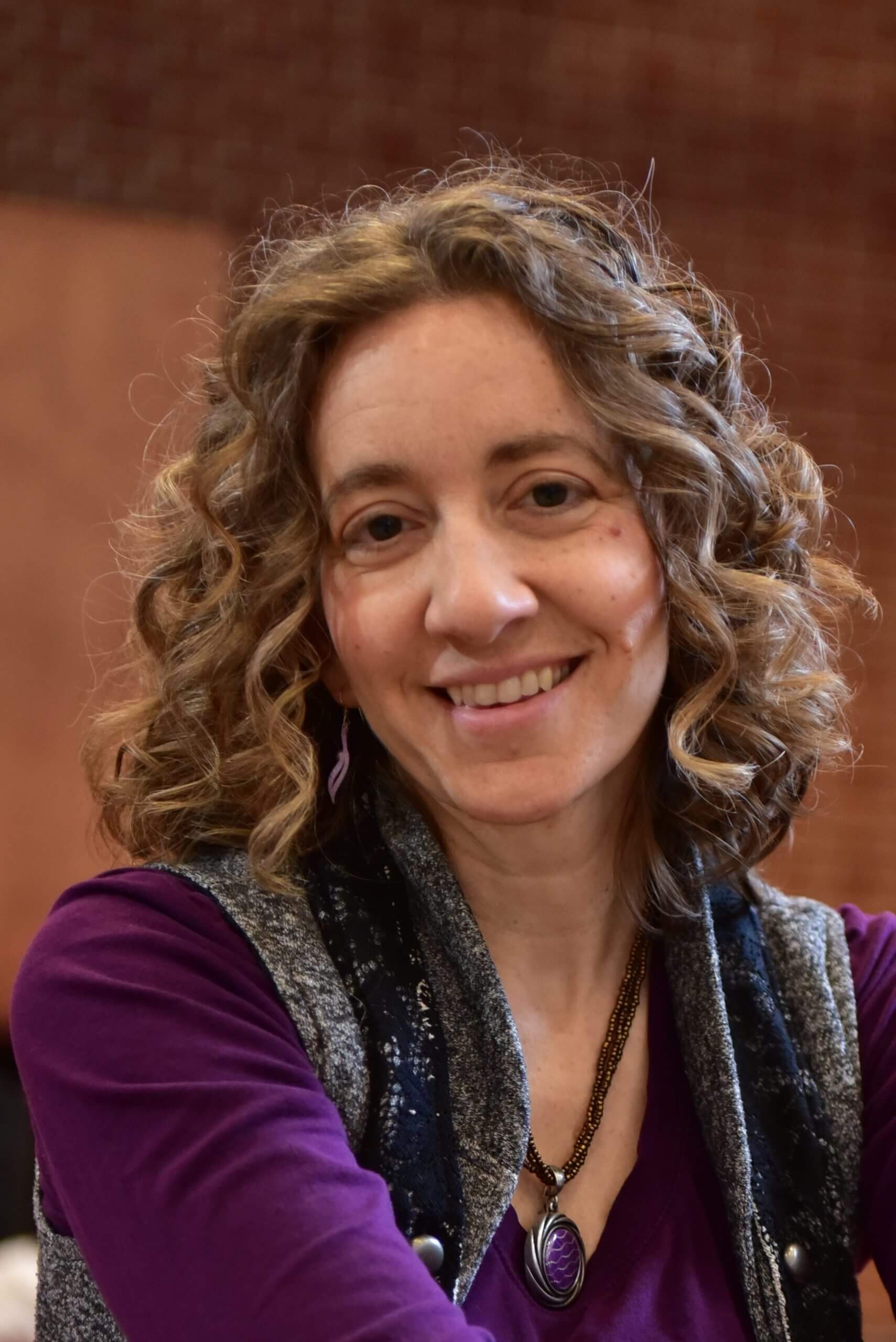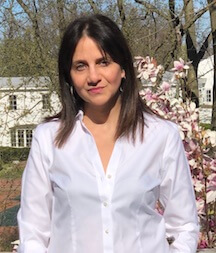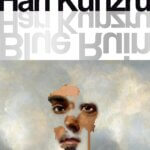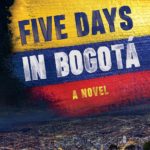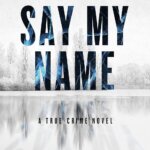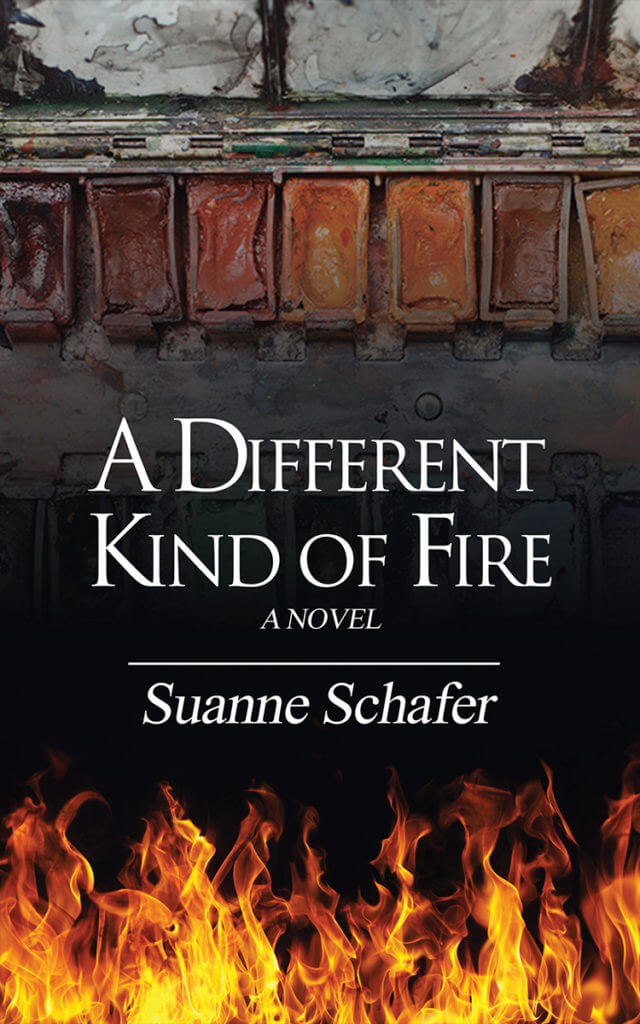Jenny Jaeckel is the award-winning author and illustrator of several books including her novel Boy, Falling (a companion book to House of Rougeaux), a collection of illustrated short fiction entitled For the Love of Meat, and the graphic novel memoir Spot 12: Five Months in the Neonatal ICU. When not writing, Jaeckel works as an editor and translator. She lives in Victoria, British Columbia, with her family.
SS: Hi, Jenny. Can you share a bit about your background?
JJ: I grew up in various hippie communes in Northern California and have been a bit transient most of my life, with stints in Mexico, Spain, Texas, and both coasts of North America. I now live in Victoria BC with my partner and kid, and hope to be here a long time.
SS: What did you want to grow up to be as a child? Has that child’s desire appeared in your work?
JJ: As a kid I was constantly drawing pictures that often emerged as “series” or “books”. Some of my books are illustrated, and some are straight prose. Somehow I’ve always been wanted to render the world on the page. When I think of myself at age three (I’m 50 now) drawing people with legs coming out of their heads, I think I haven’t changed much!
SS: What’s the first book that made you cry? Made you angry? Made you rejoice?
JJ: I well remember the first book that made me cry, Riff Remember, about a dog who loses his master. He was very lonely, and I really felt for him. I was probably ten or eleven at the time.
SS: Writing is undoubtedly a lonely occupation. John Green (The Fault in Our Stars) says writing is a profession for introverts who want to tell you a story but don’t want to make eye contact while doing it. P. D. James (Cover Her Face) says it’s essential for writers to enjoy their own company. Do you see yourself along those lines? Are you a natural loner?
JJ: I am an introvert’s introvert, to be sure. I love my friends, I love my family, but I require a lot of time alone to feel sane. Writing does put you face to face with your own psychology in many ways, and requires a lot of autonomy—though getting outside feedback is essential. I’m terrible when it comes to dividing my focus in too many directions, but I’m capable of focusing deeply on a single thing. I can write a book, but I can’t plan a party, let’s put it that way.
SS: Hilary Mantel (Wolf Hall) says that a Catholic upbringing is the only qualification a writer requires. Can you relate to this idea? Do you have any similar writing qualifications?
JJ: It’s a good thing a Catholic upbringing isn’t required to be a writer, because a lot of us don’t have that background. I think you do need and upbringing though, which luckily we all have. And I think it helps to do a lot of reflecting on and digging around in said upbringing, because this is garden from which we sprung, and knowing yourself is really important, even if what you write is complete fiction. To know your art you have to know your artist, otherwise it’s an unconscious process and the art will ring false, in my opinion.
SS: What is a fun or strange source of inspiration that ended up in your book (a name, location, line of dialogue, etc.)?
JJ: A principal seed for my novel House of Rougeaux came from an uncanny dream I had many years ago. Most of my dreams are anxious mash-ups and pointless pursuits, like hunting for house keys at the bottom of a swimming pool, but this dream was very different. I was another person in this dream, an enslaved woman living in colonial times on a sugar plantation somewhere in the Caribbean. The closest person in my life was my brother, and he and I had a kind of psychic communication with each other. There is a scene in House of Rougeaux that involves a dog attack, that came directly from this dream.
SS: It is often believed that almost all writers have had their hearts broken at some point in time, does that hold true for you?
JJ: It must be that all writers have had their hearts broken, because doesn’t heartbreak happen to everyone? Heartbreak and all it entails I think is a huge reason why art and literature exist, for both the creators and for the audience. Art helps us live through heartbreak, understand it, grow from it, realize we aren’t alone. Heartbreak is so dang existential, because when our hearts break, so do our dreams and/or illusions. Nothing is the same afterward, and this is not always bad. Like Leonard Cohen said, “the cracks are where the light gets in.”
SS: Writers are often believed to have a Muse, your thoughts on that?
JJ: I really love the idea of a Muse, in that there is something metaphysical and external that does a kind of come-hither dance with our creativity. I experience that sometimes like an inner upwell of energy that I sense arising even before I know what shape it’s going to take. Where does that come from? I think it’s one of the exciting mysteries of life.
SS: What other authors are you friends with, and how do they help you become a better writer?
JJ: My editor, Neesa Sonoquie, is like my editorial Kung Fu Master. We have worked on four books together now, and she has taught me a tremendous amount about writing. The process of turning over a draft to her and getting back a bag of confetti has caused me to grow as a writer in ways nothing else has. She has x-ray vision and she sees everything from the micro to the macro, and has no problem tearing down the BS to make way for the truth to emerge. It’s awesome.
SS: How do you give back to the writing community?
JJ:I really try to be supportive to other writers when I can—whether that’s moral support, editorial, sharing things I’ve discovered, etc. Lots of people have the desire to write, but get tripped up by any number of psychological or circumstantial pitfalls, so I also try to support that desire in others.
SS: Do you generally write in one genre? If so, what is it? And what can readers expect from one of your books?
JJ: I have written and illustrated graphic novels and a book of short fiction, two historical fiction novels, and one coming-of-age/love story novel, and I’m currently working on an illustrated novella about rats living in New York City—so these are a variety of genres. That said, these books all have a lot in common: the voyage of self-discovery, a big focus on relationships, and a sprinkling of metaphysical elements you could call magical realism.
SS: Regardless of genre, what are the elements that you think make a great novel? Do you consciously ensure all of these are in place?
JJ: To me a great novel is rich in specific, pertinent detail, wherein every detail helps illuminate both the external world and the internal world of the characters. A great novel is also intimate, I don’t just connect with the characters I fall in love with them. A great novel also has to have a story, a plot, with an ending that is both a surprise and makes complete sense. Lastly, a great novel has to use language in unique, interesting, and beautiful ways, not for the sake of being clever or decorated, but to illuminate the story and engage the readers mind in ways never has before. In my work I certainly strive toward all these things, but whether or not any of my novels are great will be up to the readers to judge!
SS: Which book(s) do you return to again and again?
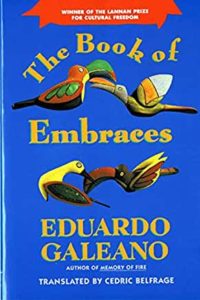
SS: What’s something memorable you’ve heard from your readers/fans? What’s been the best compliment?
JJ: I have a special notebook where I keep copies of emails or cards I’ve received from readers that are most heartening and encouraging, and when I need some bolstering I re-read them. Reading is so subjective, but when you have readers truly connect with what you were trying to do in a given book and express that to you, it’s a really wonderful thing. Not everyone will love your books, that’s just a given, but if someone does and tells you, that’s just the ultimate.
********************
House of Rougeaux is a family saga spanning seven generations—from a colonial-era sugar plantation to Civil Rights-era Philadelphia—an intimate portrayal of survival and triumph, love and resilience, with touches of magical realism.
Born in the 1700s and enslaved on the Caribbean Island of Martinique, young Abeje and her brother Adunbi owe their survival to their uncommon abilities and to the kindness of fellow bondsmen. After Adunbi’s daughter is taken away to Canada she becomes emancipated in Quebec City; grandchildren find their way in Montreal, a great-grandchild escapes persecution to Philadelphia, and another risks everything to pursue music in New York City. As each new member of the family takes the spotlight, a fresh piece of the puzzle is illuminated until at last, a homecoming uplifts them all. Following the echoes between generations which defy normal space and time, a multilayered narrative celebrates the Rougeaux family triumphs while exposing the injustices of their trials.
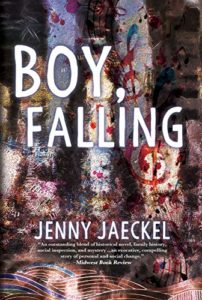
Boy, Falling is available through:
********************
An excerpt from House of Rougeaux:
Philadelphia, 1949
One o’clock on a sunny Sunday afternoon finds Cornelia Montgomery and Azalea Hubbard on their knees, bent over an early flower that has pushed its way up through a crack in the sidewalk. The clack of heels on the pavement and laughing voices surround them. Folks are still trickling out of church, shaking hands and paying respects, after the post-service social hour.
It’s a tiny thing with velvety red petals and an interesting yellow sprout in the middle, made all the more curious that, despite the sun, it is not yet spring. But here comes an adult voice, Cornelia’s mother to be exact, saying Get on up, because they aren’t little girls anymore, and their mothers (who are sisters) didn’t wear out their fingers stitching those Sunday coats and dresses so they could ruin them playing on the ground.
Between them Nelie and Azzie have a passel of brothers and sisters, but none are as close as they. Now they stand brushing off their hands on their skirts, one pink and one mint green, smiling slyly at each other and saying, Yes ma’am. Azzie’s little brother Junior sidles up to them, holding a piece of cake in a napkin. It’s his curse to need eyeglasses, in thick black frames, frequently askew as they are now, having been knocked to the side by a squeezed-past elbow or handbag. The girls reach out as one to straighten them.
Nelie and Azzie skip to school each morning with their arms linked. They trade dolls and candy and hair ribbons. They whisper secrets, make up rhymes, find the same things funny and suffer the other’s indignities as their own. Azzie is a little bolder, Nelie’s singing voice is a little better and her coloring is lighter and decorated with a few of her father’s freckles. But not much disturbs their harmony. It is said that, like twins, the two share a soul.
********************
You can follow Jennie on social media here:
Website | Instagram | Facebook | Goodreads
********************
This post contains Amazon Affiliate links. As an Amazon Associate, I earn a small amount from qualifying purchases.


